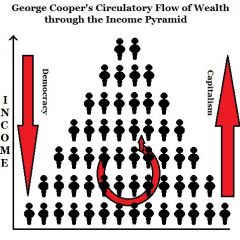An Essential Vision survey of 1000 of its 100,000 selected “eligible” Australians showed 49% would ban Muslim immigration.
This was a shock to most commentators. While it is fair to question the methodology used, it also could be an indication of just how far elite thinking has moved from what ordinary people think. Only a survey of all voters, randomly selected, would really address the reasonable methodological doubts. Nevertheless, this survey and the vote in Australia for One Nation does indicate that there could be a real issue with Muslim Immigration in Australia at the moment.
Ban on Muslim Immigration – Reasons
Surprisingly, the #1 reason cited for supporting a ban is not “Terrorism,” but “They do not integrate into Australian society.”
The perceived lack of integration has been a typical Australian comment on large numbers of new arrivals from a particular country. It has been said about 19th century Chinese immigration. It was probably said about Greek and Italian immigrants. More recently it has been said about Vietnamese immigrants and Koreans, and now about Muslims.
It is natural for people moving to a new country to live and work in places where there are many others of the same ethnic background. As confidence grows, many new arrivals find it easy to locate themselves in the wider community. This is currently the case with Chinese and Indian immigrants, who are widely dispersed in Australian cities, with sociological factors such as education and social standing playing a much larger role than ethnic identity.
While it is possible that Muslims will prove to be a different case, since Islam traditionally has had no concept of a “secular state,” secular states have more recently operated in Muslim-majority nations, such as Lebanon, Egypt, Iraq, Syria and Indonesia. (Turkey is not a good example, as in modern times it has been a Muslim-only nation except in Istanbul.) Also the rise of sectarian conflict in Syria and Iraq, primarily Sunni uprisings against non-Sunni governments, raises questions about the willingness of Muslims to integrate into a secular society and to accept diversity of opinions.
Muslim Response is required
While “elite thinkers” can fulminate against the lack of liberal ideas among the “non-elite,” there is little that can be done to change the community perception of a lack of willingness of Muslims to integrate, unless Muslims themselves demonstrate a willingness to integrate.
Changing perception of Muslims can be led by the diverse Muslim leadership, the Imams, mosque leaders, and so on. It could begin with discouraging the use of full-face covering clothing by Muslim women. This is a cultural conditioning that does not translate well in Australia.
Overt suppression of the place of women in our society does not only apply to those who adhere to Islam. In the religious, but not in the secular spheres, it also applies to some denominations of the Christian religion. However, it appears to be more obvious in the case of Muslims, with reports of genital mutilation, polygamy, and the “bans” on Muslim women relating directly with men who are outside of the family.
Treating women in a way that appears to relegate their role to complete subservience to men will never be accepted in Australian society. Addressing this question is something that only Muslim leadership can address. Laws can prohibit the more obvious cases. For example, a ban on burqas in public buildings and events could be introduced. Laws on genital mutilation and polygamy could be vigorously enforced. But it would be far better if Muslim leadership changed the perception of Muslims by making the case that such things are not an inherent part of Islam.
What is taught in the Mosque?
I have no idea what is taught in a mosque, although we sometimes see a glimpse of a radical speaker sowing hate, either here or overseas. Such images do not build confidence in the willingness of Muslims to integrate.
Surely Muslim preachers in an Australian context are emphasizing the need for individual Muslims to earn and income and pay taxes in order to contribute to society, and not do what Mark Latham has observed, milking the welfare system of Australia at the expense of every other taxpayer. Or are they? I would love to know. On a parallel theme, one could also expect that Muslim preachers in Australia would also be teaching worshippers to pay tax according to Australian law and not blatantly defy it, as I have personally observed.
Integration not defiance
Negative perception of Muslims in Australia can be fixed by Muslims. The Essential Research poll, even if biased, shows that they have a long way to go.

Very valid, pithy, sunctcci, and on point. WD.